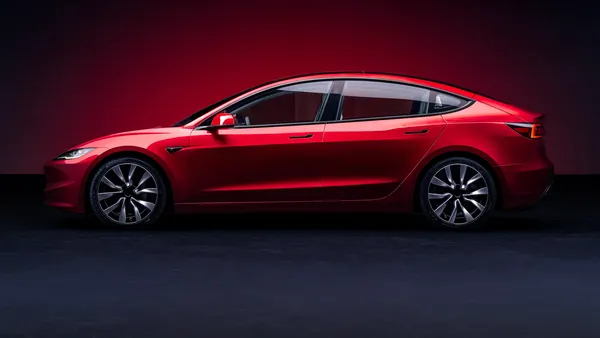Editor's note: This story is part of the WardsAuto digital archive, which may include content that was first published in print, or in different web layouts.
High prices, bland styling and a lack of incentives are key factors that can cause new-vehicle shoppers to reject models they initially considered, according to an inaugural J.D. Power and Associates' study based on responses from nearly 30,000 new-car buyers. “While many of our studies focus on what consumers think of a vehicle they've already purchased, this new study taps into the reasons why new-vehicle buyers ultimately cross certain vehicles off their shopping lists,” says Chris Denove, a J.D. Power partner and senior director of automotive research.
The study also looks at consumer perceptions of brands and specific models, as well as how brand loyalty and the salesperson influences consumer decision making.
Overall, price is the most frequently mentioned reason for rejecting a particular model. Vehicles with the highest closing ratios tend to be lower priced than the direct competition and/or offer large incentives (rebates, low-interest-rate financing, etc.).
Adds Denove, “The importance of the dealership experience also cannot be overstated.”
Sixteen percent of survey respondents mentioned that they decided not to purchase a model because they didn't feel that the dealership staff acted professionally. The study shows that when a shopper rejects a dealership because of poor customer service, it's not just the dealer that loses, but the entire brand suffers.
“Most people aren't completely committed to buying one specific model, so when they reject a dealership because of poor customer treatment, they are just as likely to walk across the street to buy a different brand than they are to drive across town to another dealer that sells the same brand,” says Denove.
Incentives are a big factor for many shoppers when deciding which vehicle to purchase. For example, 79% of Isuzu Rodeo buyers rejected another vehicle because it didn't offer low-interest-rate financing like they found on the Rodeo.
While many consumers focus on price and value, others are drawn to a vehicle's style or image. These buyers did not seriously consider any other model and stated that they chose their model because they “fell in love with it.”
Although sports cars, as a group, have the most passionate buyers, the study says that practical cars like the Chrysler PT Cruiser can attract passionate buyers if they offer unique styling that makes an owner want to show off the vehicle.
Bold styling, however, is a hit or miss proposition. Although the Pontiac Aztek ranked as most appealing in its segment among actual owners, more than half of all Aztek shoppers rejected it because of its exterior styling.
Yet, the Volkswagen New Beetle's bold retro look hit the mark — only 3% of Beetles were rejected because a shopper didn't like the styling.
Exterior styling was one of the most frequently mentioned reasons for deciding not to purchase a model. Among those consumers rejecting a vehicle because of styling, most complained that the styling was too bland, or they didn't want to drive something that looked like every other car on the road. Although passion is important, the study finds that most high-volume models, including the Honda Accord, Toyota Camry and Ford F-Series, have relatively few passionate buyers.
“There is nothing wrong with having a buyer base that isn't passionate about your vehicle, provided that your products perform well when shoppers objectively compare what your vehicle offers relative to the competition,” says Denove.
Top 10 reasons cited for rejecting particular models
- Total price too high
- Total monthly payment too high
- Disliked exterior styling
- No incentives
- Limited availability on dealer lots
- Unprofessional salespeople and dealer
- Unavailable low-interest special financing
- Reliability concerns
- Disliked interior
- Dealer refused to discount vehicle










